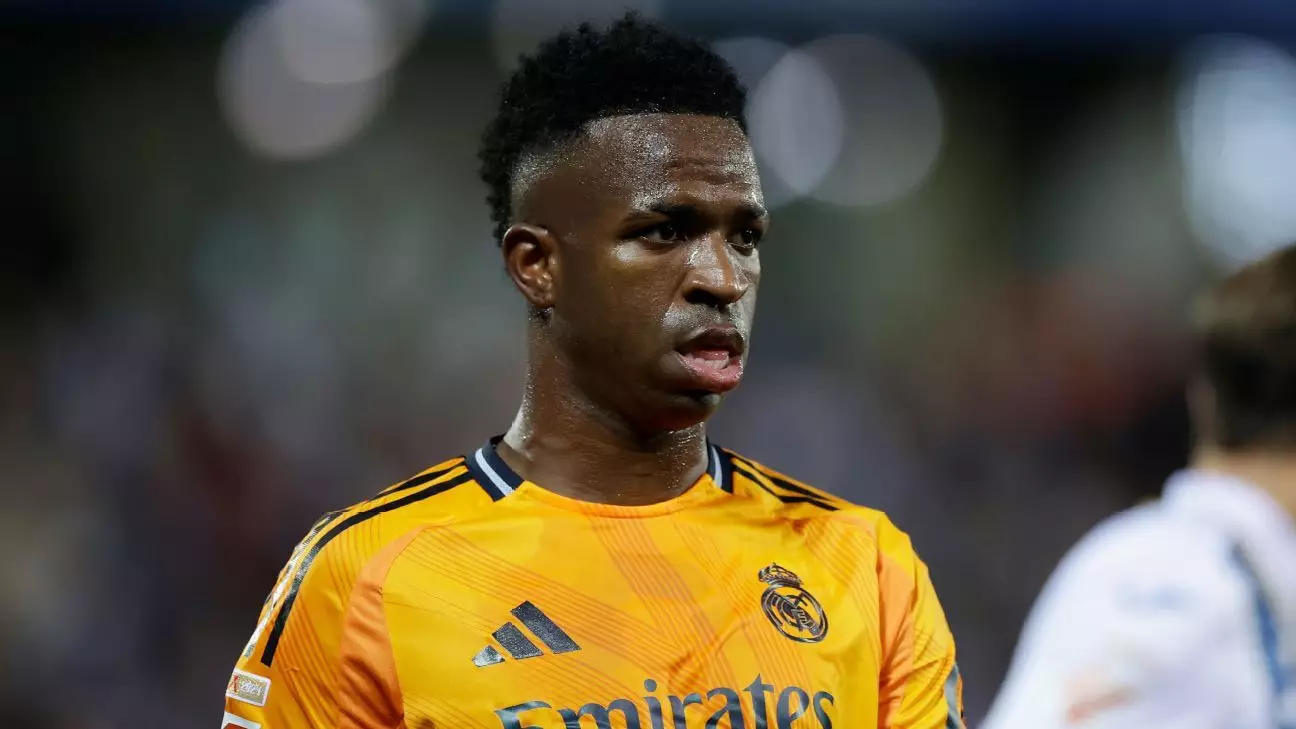In the illustrious world of football, criticism often lurks in the shadows, waiting for the moment to strike. Carlo Ancelotti, the esteemed coach of Real Madrid, currently finds himself under the spotlight for negative scrutiny following a series of disappointing results for the team. The weight of two defeats in their last three competitions has led to heightened pressure, causing Madrid to fall behind rivals Barcelona in the LaLiga standings while also struggling in the Champions League rankings. Ancelotti’s previous triumphs, which included clinching both the LaLiga and Champions League titles last season, now seem like distant memories amid the storm of blame and disappointment.
Ancelotti acknowledges the inevitable nature of criticism in football, particularly during trying times. However, he is adamant that he and his team can transform this negativity into motivation to enhance their performance on the pitch. His remarks resonate with the understanding that the coach often becomes the primary target for frustrated fans and analysts when the squad underperforms.
Accepting his role as the figurehead, Ancelotti admits, “I have to accept the criticism because the team is not at its best.” His introspection highlights a profound truth: performance in football is cyclical, and peaks are often followed by troughs. With Madrid currently grappling with its form, Ancelotti’s self-awareness provides a poignant reminder of the burdens coaches shoulder. Balancing expectations from the board, fans, and media becomes a daunting task, especially when previous successes amplify current failures.
Despite voicing concerns over the intensity of the criticism he faces, Ancelotti remains steadfast in his love for the job. He expresses optimism that this current patch of poor form is temporary, reiterating the inherent qualities within his squad. His belief in the team’s potential is compelling; he articulates a vision where patience and hard work can restore the club’s fortunes.
What truly gnaws at Ancelotti is not merely the technical critiques regarding game strategy or player selections, but rather the personal jabs that occasionally accompany them. He draws a crucial distinction: while professional criticism is a part of the sport, attacks on personal integrity can be disheartening. “It affects a person’s identity if it touches on who you are,” he asserts, underlining the importance of maintaining respect in sports discourse.
This perspective unveils the emotional landscape that encapsulates coaching at elite levels. Success comes wrapped in accolades, but failure can unjustly corrode one’s identity in the eyes of the public. Ancelotti’s ability to compartmentalize professional critique from personal attack reflects both wisdom and resilience, serving as a vital lesson for coaches navigating similar pressures.
In the face of adversity, Ancelotti embraces hope. His commitment to an optimistic outlook serves as a tactical approach to overcoming challenges. “We have to be optimistic,” he emphasizes, even as he acknowledges the struggles at hand. The fortitude of his mindset is emblematic of his approach to leadership and reinforces the idea that a united mentality can propel teams through difficult periods.
Additionally, the return of pivotal players such as Vinícius Júnior symbolizes the potential for recovery. While he may not feature in the upcoming clashes against Girona, the prospect of his availability for Champions League fixtures promises to add a much-needed offensive edge. Meanwhile, Kylian Mbappé continues to seek his form, with Ancelotti’s support highlighting the collective responsibility of overcoming individual performances and team dynamics alike.
As Real Madrid moves forward, Ancelotti’s capacity to transform criticism into constructive fuel is essential for revival. Between navigating personal responsibility and reinforcing team cohesion, it is clear that the path ahead is fraught with challenges but also opportunities for growth and reflection.
Ultimately, whether it is through tactical adjustments, rebuilding player confidence, or enhancing team coordination, Ancelotti embodies resilience in every sense. It is this determination, coupled with unwavering belief in the abilities of his squad, that may yet steer Real Madrid back to the summit of football where they rightfully belong. Fans must recognize that in the realm of sport, the journey consists not solely of victories but also of learning from adversity to emerge stronger.

Leave a Reply